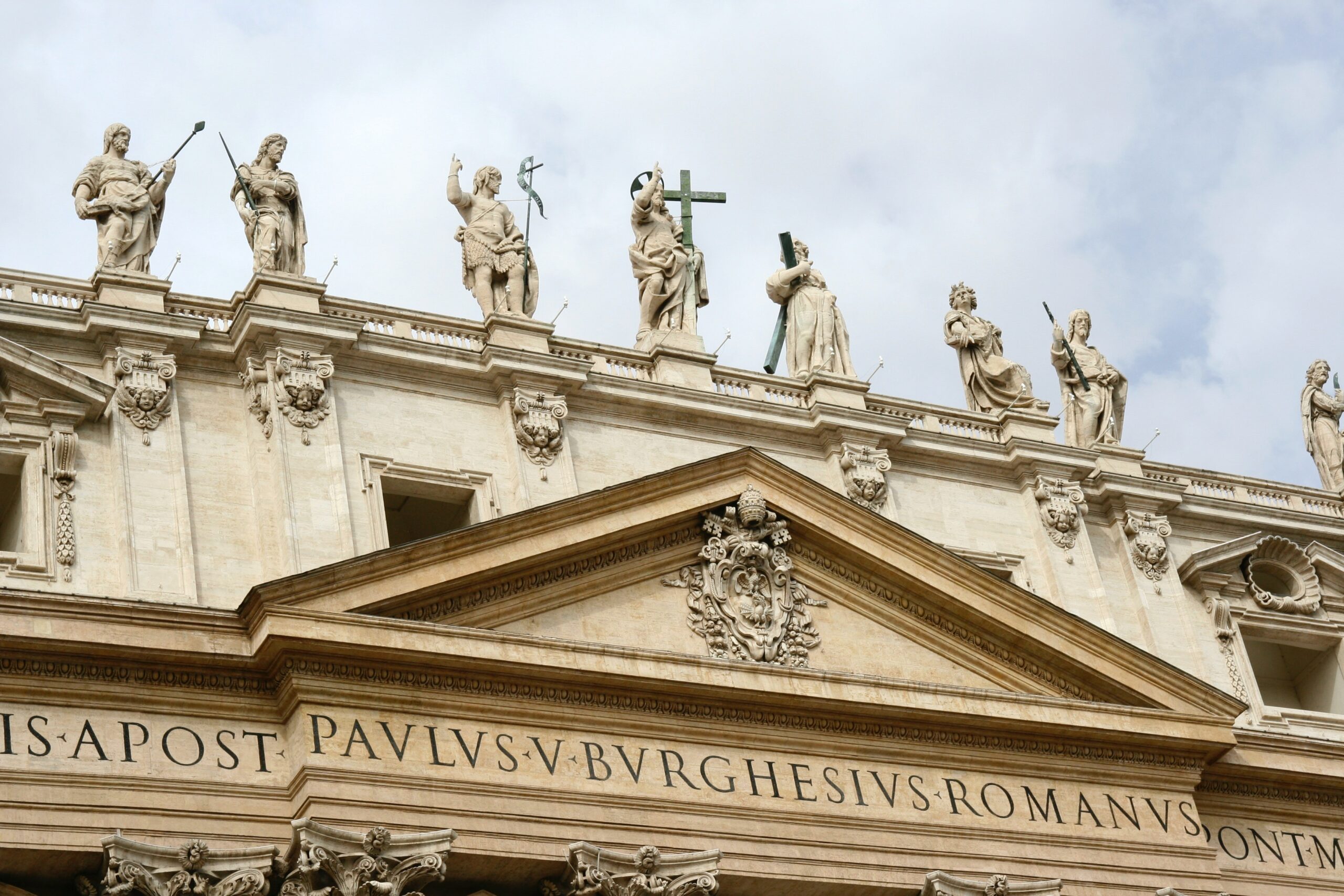One of the major documents of the Second Vatican Council includes this stirring claim that has become a central norm of Catholic social teaching:
With respect to the fundamental rights of the person, every type of discrimination, whether social or cultural, whether based on race, sex, color, social condition, language, or religion, is to be overcome or eradicated as contrary to God’s intent. (“Gaudium et Spes,” 29)
These words committed the Catholic Church to opposing all unjust discrimination. They come from the pivotal 1965 document “Gaudium et Spes,” otherwise known as the “Pastoral Constitution on the Church in the Modern World.” At the end of a momentous, four-year-long council, the first in nearly 100 years, the assembled bishops of the world committed the Roman Catholic Church to pursuing an agenda of extending human rights to all people.
The adoption of these principles reversed certain regrettable (and frankly, reactionary) stances that the Catholic Church had adopted in previous eras—defensive postures that were motivated by the desire to resist the perceived excesses of the French Revolution. These refreshing words confirmed the trajectory of modern Catholic social teaching by insisting on universal moral principles of inclusion that we take mostly for granted today. At the time, those principles were long overdue for recognition in the top circles of Catholicism.
The denial of equal rights to any minority is morally indefensible.
The connection to justice for the LGBTQ community is easy enough to discern, but still worth the effort to spell out explicitly, since not every observer so readily “connects the dots” between statements of universal principles and specific applications to particular communities and contexts.
In short, the church’s embrace of equal and fundamental rights for all categories of people must include the LGBTQ community. Discrimination against anyone because of sexual identity or orientation is as objectionable as racism, sexism, ethnic bias or religious bigotry. The denial of equal rights to any minority is morally indefensible.
Looking beyond church circles, looking within the church itself
When we apply these sturdy judgments to issues of discrimination in civil society, we reach firm conclusions about the inadmissibility of excluding people of any sexual orientation from key social opportunities. This includes admission to selective schools, employment opportunities, eligibility for public benefits, access to desirable residential locations, participation in cultural institutions and memberships in social clubs.
Ethical consistency demands no less. It is a component of Catholic social teaching to object to such discrimination against anyone based on sexual identity or orientation.
Further, beyond its obligation to advocate for equal rights for all in the widest circles of our pluralistic civil society, the Catholic Church, like all religious communities, has a moral duty to practice justice within its own operations. The commendable principles of inclusion and equal treatment that Catholic leaders recommend to external audiences for governing secular politics and the economy also hold implications for the internal life of the church—at least regarding its pastoral practice and generous offer of pastoral care to all. We must practice what we preach, or else risk charges of blatant hypocrisy.
It is a component of Catholic social teaching to object to such discrimination against anyone based on sexual identity or orientation.
In drafting “Justice in the World,” the bishop-delegates to the 1971 Synod of Bishops signaled their awareness of the dangers of hypocrisy when they wrote: “Everybody who ventures to speak to people about justice must first be just in their eyes.”
While the Catholic Church is, of course, a special institution with its own particular qualities and distinctive procedures, the basic principles of respect for human dignity apply to its operations.
Prospects for progress
Since a millennia-old institution is unlikely to turn on a dime, distressing patterns of homophobia and suspicions about gender-nonconforming people are likely to persist in some areas of church life. New ways of thinking and acting, not to mention the development of revised church policies, do not unfold overnight.
But the need for progress remains urgent. The proper agenda is well summarized in the subtitle of the breakthrough volume on this topic by Outreach editor James Martin, S.J. His book, Building a Bridge, features the subtitle “How the Catholic Church and the LGBT Community Can Enter into a Relationship of Compassion, Respect and Sensitivity.”
The key verb here is “building,” and the key noun is “relationship.” Any time two parties take up an opportunity to grow closer, the success of their efforts will depend upon the assumption of good will and practices, such as deep empathetic listening. It will do no good simply to overlook such structural impediments to building positive relationships as long histories of hostility, suspicion, scapegoating and mistreatment. Rather, progress depends upon facing up to serious obstacles and overcoming them through sincere dialogue and a commitment to accompaniment and radical inclusion.
It is no coincidence that these latter phrases are closely associated with the leadership priorities of Pope Francis. His papacy has featured a refreshing welcoming stance that invites all (without exception) to thrive and flourish, including significant outreach to the LGBTQ community.
Francis speaks frequently of the cultures of inclusion, encounter, accompaniment and dialogue. His first major teaching document, “Evangelii Gaudium,” repeatedly expresses his yearning for “a church … with doors always wide open” (no. 46) so that no person of good will is relegated to the peripheries of society, to the status of “a throwaway” or to a nonperson ostracized and isolated.
Progress depends upon facing up to serious obstacles and overcoming them through sincere dialogue and a commitment to accompaniment and radical inclusion.
Even if we all adopt the pope’s mindset, collectively embracing these attitudes will not resolve overnight the longstanding tensions that have prevented LGBTQ people from entering into the life of the church in ways that empower them to pursue their faith-filled vocations without hindrance. The temptation to prefer “culture-warrior” status to genuine pastoral engagement may persist in some circles.
We are unlikely to resolve anytime soon such sensitive issues like the provisions in Catholic-sponsored healthcare facilities on gender-affirming medical treatments. But great progress is attainable whenever Catholics apply the basic principles of this social teaching to the internal challenges facing the church.
Affirming the equal dignity of LGBTQ persons and rejecting all discriminatory practices that disadvantage them in any way are positive steps toward achieving the vision of a church whose doors remain wide open to all.



